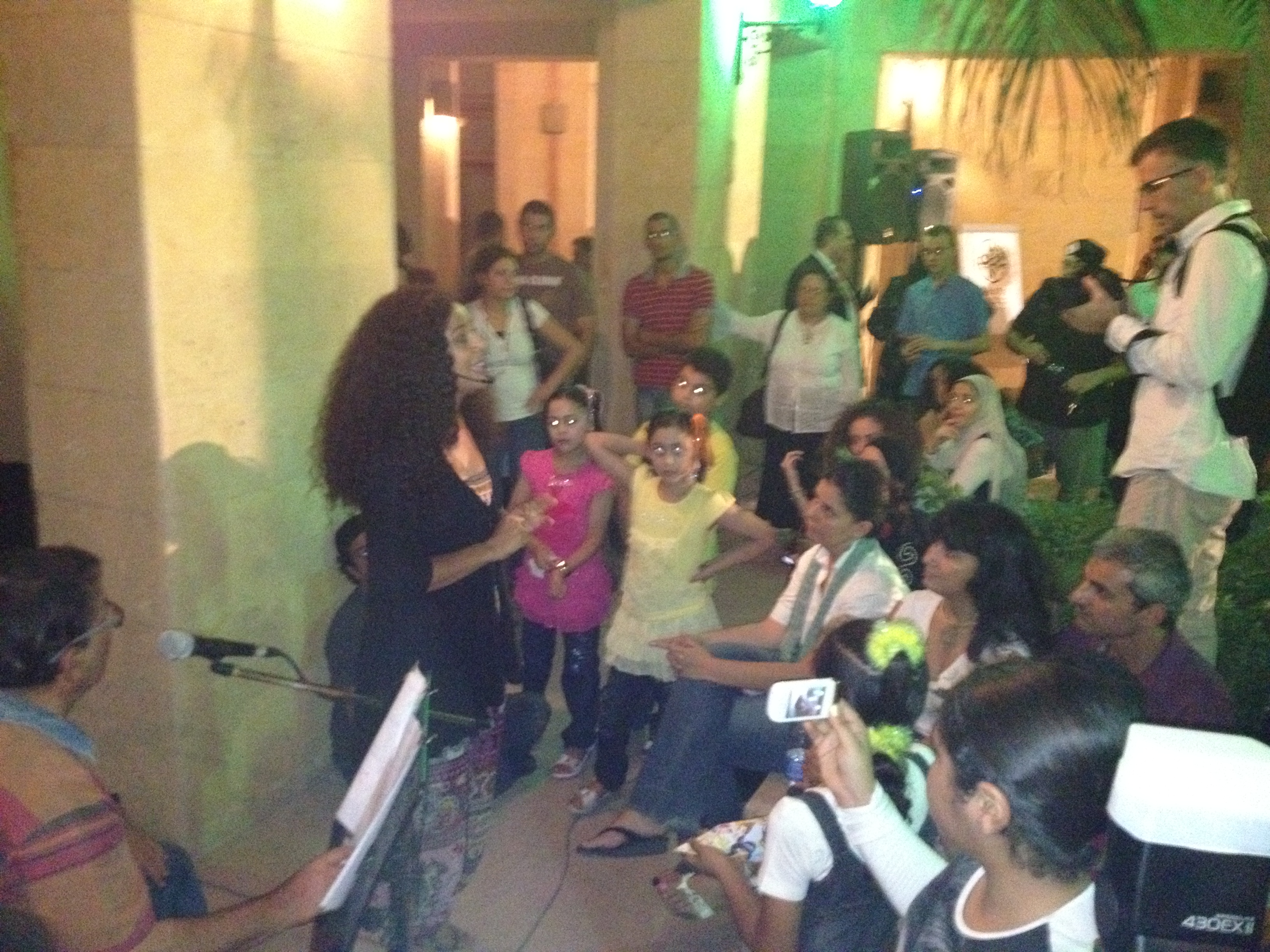
(AFP Photo)
By Fanny Ohier
What if listening to a song could bring you peace? What if a unique track could make you realise that all your personal problems have simple solutions? Music psychologist Khaled Sallam explained the realities of music therapy and the profound effect his work has on people.
The session began when Sallam put on a track he composed years ago. The attendees concentrated on the bass’s deep melody, the restless storm and the rain hitting the windows. What did the audience think when listening to his repetitive bass notes? “It made me think of my past,” said one person. “I started remembering all my personal problems, and analysed them one by one,” said another.
Sallam has been practicing music psychology in Egypt since 1997. “Many people think that music therapy is just playing music that makes people relax and feel well,” Sallam explained. “But my music is not like that, it aims to provoke your inner self.”
Sallam explained that music in general speaks to the unconscious of the listener. “If you are hiding a problem, listening to my music will make it rise to the surface and you will speak to me about it. And then, as a psychotherapist, I will find a solution to it.” Music therapy was common in Ancient Egypt but the practice disappeared until 2001 when the Egyptian Ministry of Health formally recognised it. Sallam differentiates between music therapy and music psychology, and claims that he is the only practicing music psychologist in Egypt.
Sallam started as a musician in 1994, playing bass alone and in a band. When some of his friends talked about the strange effects his music had on them, he started to study and explore his unusual talent. Sallam describes himself as a self-taught psychologist and has developed his own methods.
Sallam once received a letter from a listener living abroad who told him that listening to his compositions helped him to fight the schizophrenia he had been suffering from. “He told me that my tracks made him relax, Frees his soul and drive him to think,” Sallam explained. Doctors agree that finding the causes of pain is often the first step to a cure, and for many, this is what Sallam’s music does; it brings his audience back to their past and forces them to face it. After last Saturday’s therapy session some of the attendees were still sceptical of the process. Sallam emphasised that people have to let go and truly listen to his music to feel its effects.
The music psychology session was hosted by the cultural centre Beit El Raseef in Maadi. Literally meaning “the platform” or “the sidewalk”, Beit El Raseef is a new space that offers music and art therapy, instrument and handicraft workshops, music concerts and movie nights.
Starting next July the centre will open a space where people can sell their handicrafts as well.
Ahmed Ragaie, Shima Youssef and Ahmed Nazmi opened the centre in February 2013. “We serve organic drinks at the bar,” Mohamed Eissa, the stage manager, said. “People are welcome from 2pm until midnight to meet up, have something to drink, work and study.”
A programme of the weekly activities can be found on Beit El Raseef’s Facebook page.




